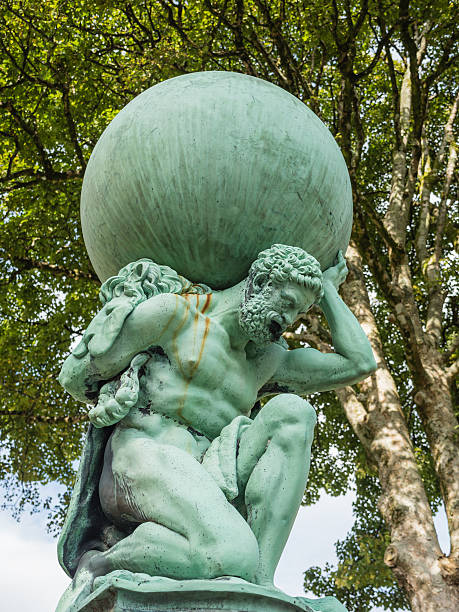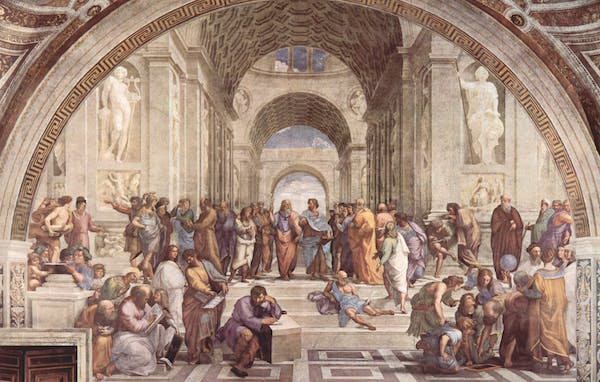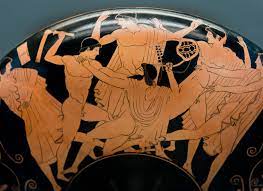Are Heracles and Hercules one and the same, or do their tales diverge in fascinating ways? As an expert in mythology, I’m excited to guide you through the intriguing comparison of these two legendary figures: Heracles vs Hercules.
In the world of mythology, their distinction has puzzled scholars and enthusiasts for ages. Both heroes share remarkable stories of valour and triumph. But the subtle disparities in their narratives and cultural contexts spark curiosity.
In this exploration, we’ll examine the adventures, characteristics, and cultural influences that define Heracles and Hercules. Join me on this journey as we dissect the legends of these two iconic figures. We’ll navigate the blend of Greek and Roman mythologies, where these two namesakes are separated by language and geography. Discover the compelling parallels and differences that make Heracles and Hercules a captivating subject of the ancient world.
Origins and Names:

The hero known as Heracles in Greek mythology and Hercules in Roman mythology is one of the most iconic figures in ancient storytelling.
In Greek mythology, the hero is referred to as Heracles, which is derived from the Greek name “Herakles.” The name itself is believed to have roots in the Greek words “hera” (meaning ‘Hera,’ the queen of the gods) and “kleos” (meaning ‘glory’ or ‘fame’). This etymology reflects the complex relationship between Heracles and Hera, who was his stepmother and one of his most relentless adversaries. The name can be loosely translated as “Glory of Hera.”
In Roman mythology, the name Hercules is used to refer to the same character. The name Hercules is a Latinized version of the Greek name Heracles. The Roman adaptation of the Greek myths often involved assimilating Greek gods and heroes into their own pantheon.
The primary difference between the two names lies in the cultural variations between Greek and Roman civilizations. Heracles is the Greek version of the hero’s name, while Hercules is the Romanized version.
Both herakles vs hercules are celebrated as paragons of heroism. They are revered for their incredible adventures, selflessness, and divine parentage.
Cultural Context

The distinction of Heracles vs Hercules extends beyond their names and encompasses the cultural contexts of Greek and Roman mythologies. Both mythologies share certain similarities due to historical interactions. They also have unique nuances that shape the identity of the hero in each tradition.
In Greek mythology, Heracles is a complex figure embodying the ideals of heroism, strength, and mortal struggle. He was the son of Zeus, the king of the Greek gods, and a mortal woman named Alcmena. Heracles’ journey was characterized by immense challenges and labors, often imposed upon him by Hera. Hera sought to punish him for his divine lineage and connection to her husband Zeus. As a symbol of overcoming obstacles and achieving greatness despite adversity, Heracles resonated within Greek culture. His feats were celebrated in art, poetry, and philosophical discussions.
In Roman mythology, Hercules assumed a role that aligned with Roman values and beliefs. The Romans identified Hercules with their own god of strength, Virtus. They admired him for his embodiment of virtuous qualities such as bravery and fortitude. This connection allowed the Roman people to adopt the Greek hero into their pantheon.
Worshipers of Heracles vs Hercules

In the realm of Greek mythology, Heracles, known as “Herakles” held a position of reverence. A dynamic demigod, he commanded a devoted following across various city-states. Temples and rituals dedicated to Heracles flourished, portraying him as the embodiment of valor. His journey, characterized by monumental challenges, resonated with Greek ideals of personal growth. The Twelve Labors, showcasing his strength and virtue, became emblematic of his heroism. Heracles served as a link between humanity and gods, offering protection and aid, with festivals.
In Roman mythology, Hercules transcended the Hellenic heritage to become an essential deity in the Roman pantheon. Hercules’ veneration harmonized with Roman values of bravery and moral strength. Temples and altars dedicated to him dotted the landscape of the Roman Empire, underlining his significance. His Labors, emphasizing the triumph of discipline and resilience, were symbolic of virtues crucial to Roman identity.
Though the names Heracles and Hercules mark linguistic distinctions, their worshipers upheld their shared core of heroism. Greek worshipers celebrated Heracles as a symbol of human potential. While Roman devotees embraced Hercules as a paragon of moral character.
Death of Heracles vs Hercules

In Greek mythology, the death of Heracles was marked by tragedy and divine strife. Having accomplished his Twelve Labors and attained immortality, Heracles fell victim to a plot of Hera, his relentless antagonist. She drove him to madness, leading him to kill his own wife and children. Heracles sought purification through various trials, including serving as a slave and participating in the Trojan War. Ultimately, he was rewarded with godhood and wed to Hebe, the goddess of youth, achieving a form of redemption.
The Roman version of Hercules’ death diverges significantly. Revered for his virtuous character and deeds, Hercules earned a place among the gods on Mount Olympus. He married Hebe, the goddess of youth, representing a harmonious conclusion to his life. Unlike the turmoil that characterized Heracles’ fate, Hercules’ transition to divinity was a triumphant one, reflecting Roman ideals of moral integrity.
A brief Comparison Table
| Aspect | Heracles (Greek Mythology) | Hercules (Roman Mythology) |
| Name | Derived from “Hera” and “kleos” (glory) | Romanized from “Hercle” and “ales” |
| Cultural Context | Greek civilization | Roman civilization |
| Parents | Zeus (father), Alcmene (mother) | Jupiter (father), Alcmena (mother) |
| Siblings | Numerous half-siblings through Zeus | Fewer half-siblings through Jupiter |
| Children | Numerous children from various relationships | Generally fewer children |
| Powers | Immense strength, exceptional combat skills | Immense strength, invulnerability |
| Attributes | Valor, strength, overcoming adversity | Strength, honor, military prowess |
| Divine Connections | Hera’s challenges, divine lineage | Divine assistance, heroic destiny |
| Feats | Twelve Labors, battles with monsters | Adapted Twelve Labors, patriotic feats |
| Narrative Focus | Mortal’s relationship with gods | Heroic valor and resilience |
| Appearance | Physically powerful, bearded | Physically powerful, often depicted clean-shaven |
| Death | Died after being poisoned by his wife, Deianira | Died by ascending to Mount Olympus and becoming a deity |
FAQs
- Are Hercules and Heracles the Same?
Despite the similarity in names, Hercules and Heracles are not the same. They are counterparts in different mythologies, with Heracles belonging to Greek mythology and Hercules to Roman mythology.
- Is Hercules a Demigod like Heracles?
Yes, both Hercules and Heracles are considered demigods. They are born of mortal mothers and divine fathers – Alcmena and Zeus respectively.
- What’s the Main Difference Between Heracles and Hercules?
The main difference between Heracles and Hercules lies in the cultures from which their names and stories originate. Heracles is the Greek name for the hero, and his tales are steeped in Greek mythology. But, Hercules is a Romanized name, and his stories align with Roman values and cultural context.

